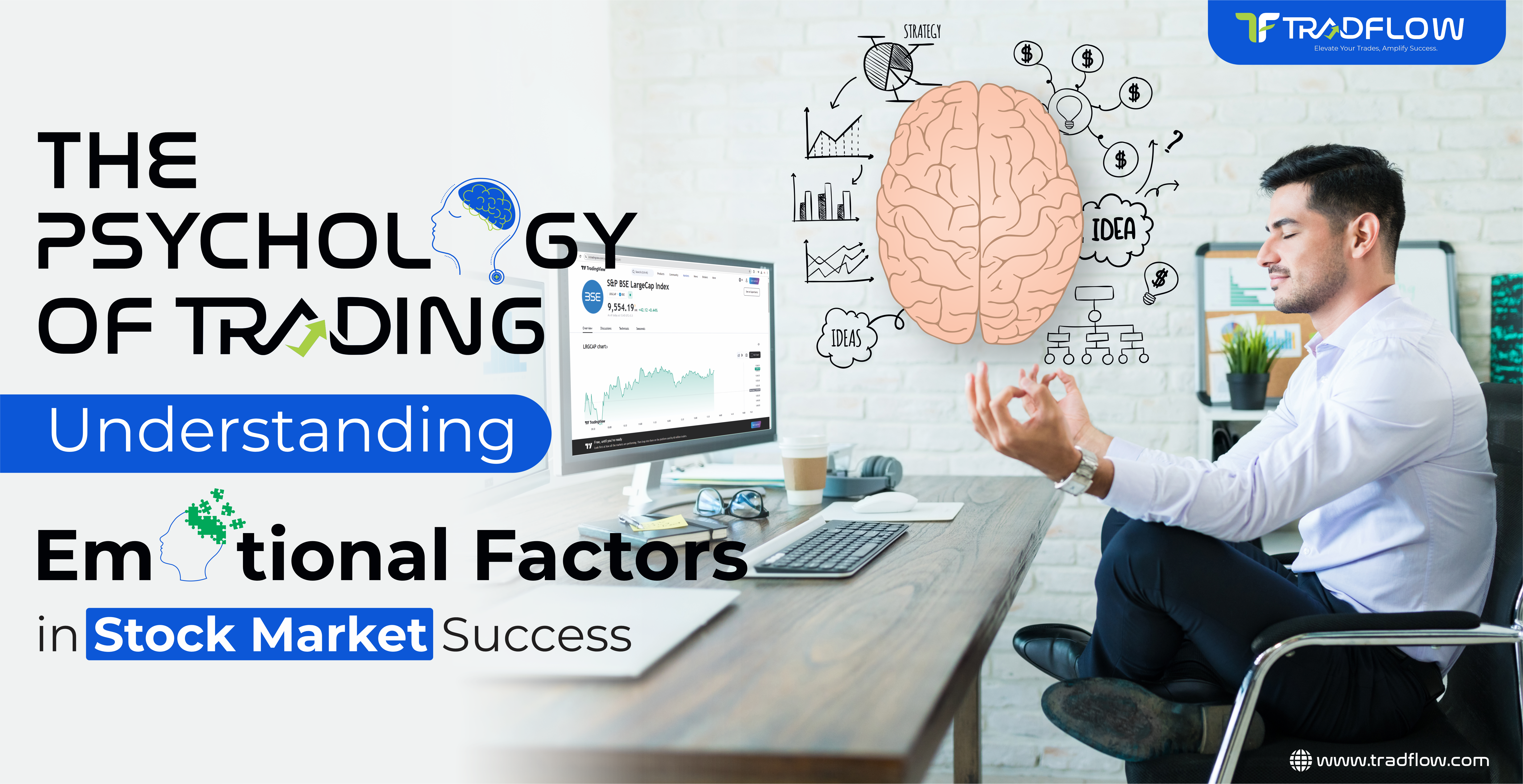The Psychology of Trading: Understanding Emotional Factors in Stock Market Success
When it comes to trading in the stock market, it’s not just about the numbers. Sure, charts, trends, and analysis play a crucial role, but one often overlooks an important aspect that can make all the difference: Our emotions.
Yes. Trading psychology is critical because trading can invoke strong feelings—excitement, fear, greed, and even despair. Understanding these emotions and how they influence our decisions is key to achieving success as a trader.
The Emotional Ride of Trading
Think about it: how many times have you found yourself feeling confident one moment, only to panic the next when market conditions change? This emotional rollercoaster is a common experience for traders. Studies have established that emotional responses may significantly influence the performance of the trading. In fact, it has reached to such a level that it's worth discussing a couple of the most powerful emotions that might impact our trading strategies—fear and greed.
Fear can whisper doubts in our minds. What if the market crashes? What if I lose everything? Those two questions alone can be sufficient to create indecisiveness or, worse, an exit from trades too soon.These thoughts can lead to hesitation or, worse, make you exit trades too early, missing out on potential gains. This fear of loss can hold you back from making rational, well-informed decisions. First, we must know what fear in trading is all about so as to conquer it.
On the flip side, we have greed. Easy money is a recipe for hubris and "the sky's the limit" attitude; it's like the game can't lose.When things are going well, it’s easy to get caught up in lofty ambitions and think you can’t lose. This can lead to taking undue risks, ignoring your trading plan, and chasing after profits without considering the potential consequences.Understanding the role of greed in your trading helps keep your discipline sounder.
There can be a rather simple solution to this problem: Balance - striking much needed, and developing Strategies for the good management of your Emotions.
So, how do you find your way through this minefield of emotions?
Here are our few strategies that will help you manage your emotions and improve your trading outcomes:
Develop a Trading Plan:
Creating a well-thought-out trading plan is essential. It should outline your Investment goals, risk tolerance or appetite, and a clear set of rules for entering and exiting trades. Having a plan can provide a structure that keeps your emotions in check.
Set Realistic Goals:
Aim for achievable goals rather than striving for perfection or outrageous returns. Setting realistic trading goals not only reduces pressure but also control the feelings of disappointment when things don’t go as planned.
This not only takes some pressure off but also mitigates feelings of disappointment when things don’t go as planned.
Practice Mindfulness:
Mindfulness techniques such as meditation or deep breathing exercises can help you stay grounded. When the market gets volatile, take a moment to pause, introspect and assess your emotional state before making further decisions.
Keep a Trading Journal:
Documenting your trades, as well as your emotional state during those trades, can provide valuable insights over time. Review your journal regularly to identify patterns in your emotional responses and learn from them.
Don’t Overload Your Information:
While staying informed is important, too much information can lead to analysis paralysis and emotional decision-making. Choose your sources wisely and set designated times for market analysis.
Know When to Step Back:
If you find yourself feeling overwhelmed, take a break. Sometimes the best decision is to step back and give yourself time to regain perspective.
Take Help from Experts
You should seek the help of experts like Tradflow when required in guiding you throughout the market volatility.
The Importance of Emotional Intelligence in Trading
Emotional intelligence is a crucial factor in trading success. A trader with high emotional intelligence can recognize their emotional triggers and differentiate rational thoughts from feelings. Developing emotional intelligence can be a game-changer for managing the complexities of trading psychology.
Conclusion: Get Realistic
Trading is as much a mental and emotional challenge as it is a technical one. By acknowledging the role emotions play and adopting strategies to manage them, you can navigate the stock market with greater confidence and clarity.
Remember, it’s okay to feel fear and greed—they’re part of being human. The key lies in not letting those feelings dictate your actions. With practice and patience, you can enhance your trading performance while fostering a healthier relationship with the markets.
So, next time you feel the excitement creeping up or the tightened grip of fear, take a deep breath, remember your plan, and trust in the strategies developed. Mastering the art of emotional regulation besides smart decisions is what really makes success in the stock market.
Disclaimer I am not SEBI certified Research Analyst, do your own due diligence before investing or ask your investment advisor.








